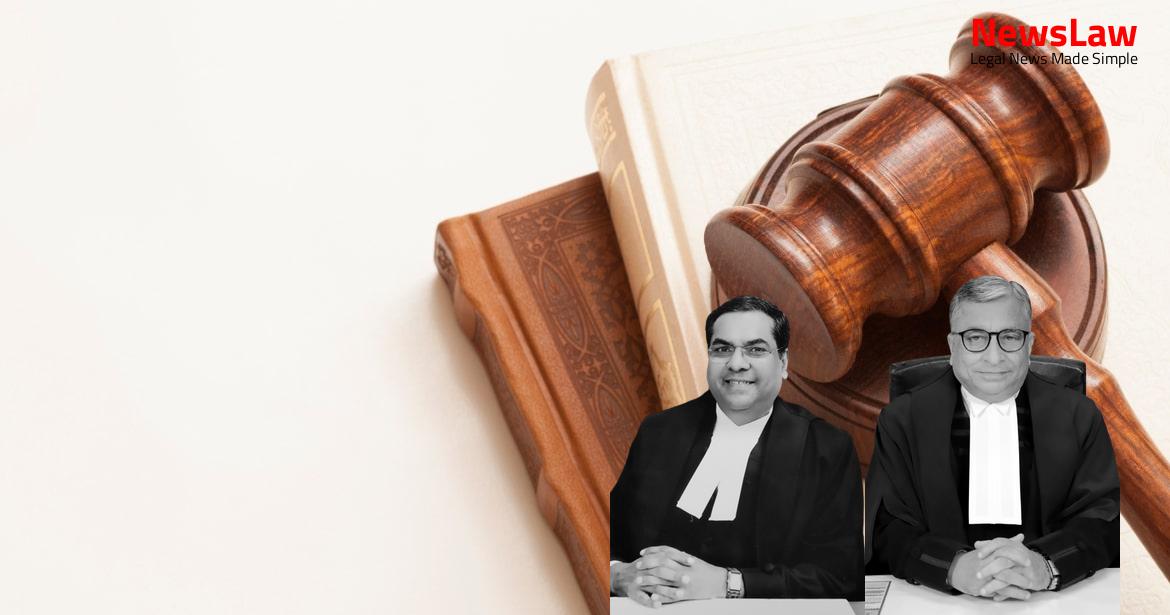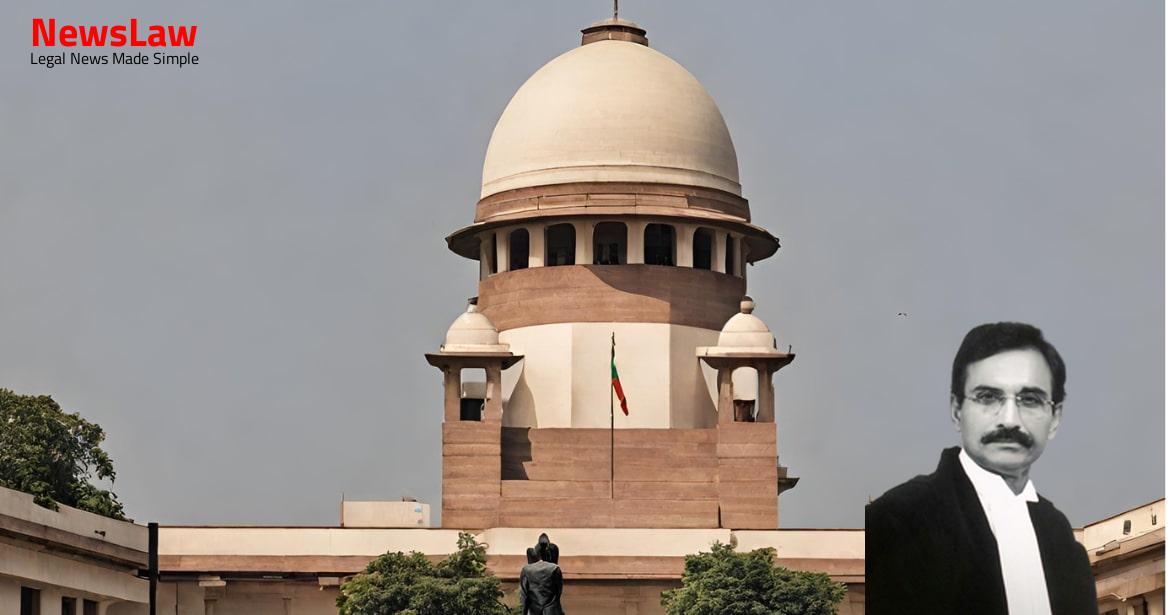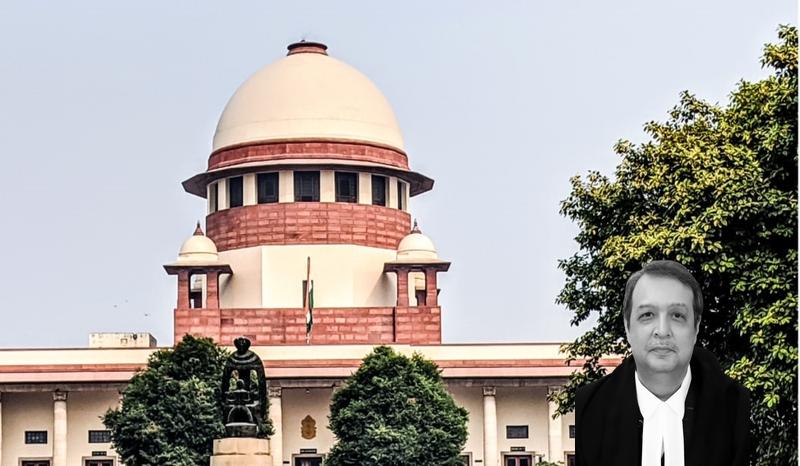Explore a legal case where the court delves into the debate between normalization and eligibility criteria. The court’s in-depth legal analysis sheds light on the intricacies of applying normalized scores while upholding mandated eligibility conditions. Stay tuned to uncover the complexities of selection processes and the significance of judicial review in such matters.
Facts
- A total of 6,30,926 applicants submitted online application forms in response to advertisements for various positions in the Uttar Pradesh Police.
- The selection process included an online written examination, physical standard test, and physical fitness test.
- The online written examination had a total of 160 questions with four subjects: General Hindi, Law/Constitution/General Knowledge, Maths & Mental Ability, and Mental Interest/Brainstorming/Logic-based.
- Applicants had to score a minimum of 50% marks in the test to be eligible for recruitment.
- Medical examinations were conducted by the Chief Medical Officer of the concerned district for selected candidates.
- Normalization of marks was done for candidates who appeared for the examination on different dates, shifts, and had different question papers.
- The Normalization process adopted by the board was considered legal and justified.
- Several candidates who secured more than 50% raw marks in the examination were called for further stages, including Physical Standards Test and Physical Efficiency Test.
- A Writ Petition was filed in the High Court by candidates questioning the normalization process and claiming exclusion despite meeting the 50% score threshold.
- The Board defended the normalization process and stated that all candidates meeting the 50% marks criteria, either in raw marks or after normalization, were deemed successful for the next stages of recruitment.
- Candidates who did not attain 50% marks would be disqualified.
- The process of scaling was done examinerwise, not considering the average of all candidates.
- There were unfilled vacancies due to non-availability of suitable candidates.
- The process of normalization was rightly adopted in preparing the select list.
- Certain candidates found unsuccessful in Medical Examination would be declared unfit.
- Cancellation of any question would be done in accordance with established law and order.
- Challenges to the judgment and order were made through Special Leave Petitions.
- The court directed the State and the Board to provide specific information about candidate marks before and after normalization.
- A specific target needed to be met at the Rule 15(b) stage in order to proceed to the next level.
- The normalized score was to be used for comparing candidates’ performance, not for disqualifying them.
Also Read: Electoral Malpractices in Mayor Election
Issue
- The issues that arose for consideration were related to the Selection Board’s authority in applying normalized percentile scores to determine candidate eligibility and whether this transgressed the mandated eligibility criteria of 50% marks in Rule 15.
- The scope of judicial review of the Standardized Equitable Percentile Method used by the Selection Board was also a key aspect for deliberation.
- Rule 15 of the Recruitment Rules was quoted by the Division Bench in paragraph 66 to provide context for the discussion on the Selection Board’s actions and authority.
Also Read: Balancing Power and Transparency: Electoral Bonds Struck Down, Disclosure Mandated
Arguments
- The submissions of the learned counsel for the petitioners highlighted various key points:
- The Selection Board is limited to determining the procedure of the written examination and not the selection process itself.
- The eligibility requirement of obtaining 50% marks is a fixed condition under the Recruitment Rules and cannot be altered by normalized scores.
- Normalization is a method of evaluation within the written examination process, not an eligibility condition.
- Normalized scores can only be used for preparing the select list in order of merit.
- The Selection Board exceeded its authority by eliminating qualified candidates who scored 50% marks in each subject by using normalized scores.
- The counsel for U.P. PSC submitted that the observation made by the High Court is incorrect.
Also Read: Recall of Resolution Plan Approval: Legal Analysis
Analysis
- The same word may be used in different senses in the same statute, and even in the same section.
- The context determines the meaning of a word used in different provisions of the Act.
- Non-speaking orders were considered in a case related to the validity of selections for the U.P. Judicial Service.
- The adoption of scaling of marks or normalization in conducting examinations was discussed in various cases.
- Continuous review and evaluation are essential for any scaling method to be reliable in the selection process.
- The Commission is open to adopting a different or better system if the present system is found to be defective.
- The decision of the Andhra Pradesh High Court was deemed incorrect, while the Bombay High Court’s decision was approved.
- The assessee was found not entitled to investment allowance or deductions under various sections of the Act.
- The expression ‘marks’ must have the same meaning at different stages to ensure consistency.
- Expert bodies’ decisions should not be interfered with unless arbitrary or mala fide exercise of power is proved.
- The doctrine of merger in the context of appeals was explained, as well as the jurisdiction of the Supreme Court.
- Various methods of statistical scaling were discussed, highlighting the importance of uniformity in assessment.
- Different meanings of the same word in different parts of the Act were observed in relation to articles or things.
- The anomalies and absurdities arising from the scaling system were demonstrated, emphasizing the need for a suitable evaluation system.
- The judgment in U.P. Public Service Commission v. Subhash Chandra Dixit regarding scaling methods was noted.
- The High Court’s approach to scaling of marks in Mahinder Kumar was found appropriate in a specific case.
- The State and the Board allowed candidates from both categories – more than 50% ‘raw marks’
- Accepting the challenge raised on behalf of the State and allowing the appeals
- Setting aside the judgment and order passed by the High Court
Decision
- Application Form can be purchased from notified Post Office/Bank by paying prescribed fees.
- Board prepares a select list of candidates based on merit and reservation policy.
- No waiting list is prepared by the Board.
- Head of Department forwards the list to the Appointing Authority for further action.
- Selected candidates may file an appeal on the day of Medical Examination if not satisfied.
- State may consider allowances for subsequently disqualified candidates.
- Selection and final merit list based on Physical Efficiency Test and written examination marks.
- The appointees should not claim any right over the appointment until the writ petition outcome.
- Selected candidates sent for training.
- Specific application process details to be provided in the affidavit within four days.
Case Title: THE STATE OF UTTAR PRADESH Vs. ATUL KUMAR DWIVEDI (2022 INSC 24)
Case Number: C.A. No.-000228-000228 / 2022



